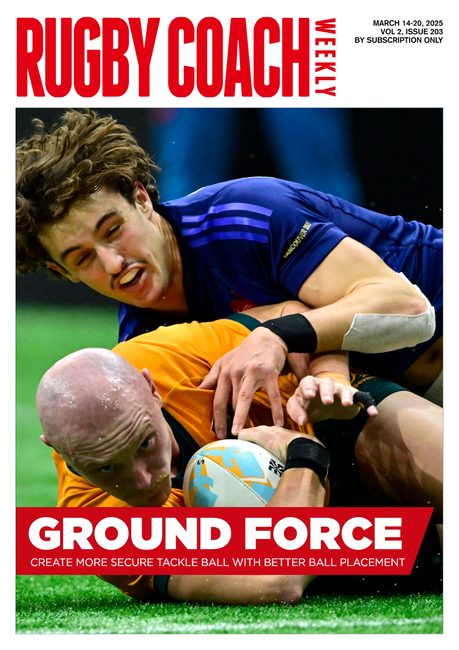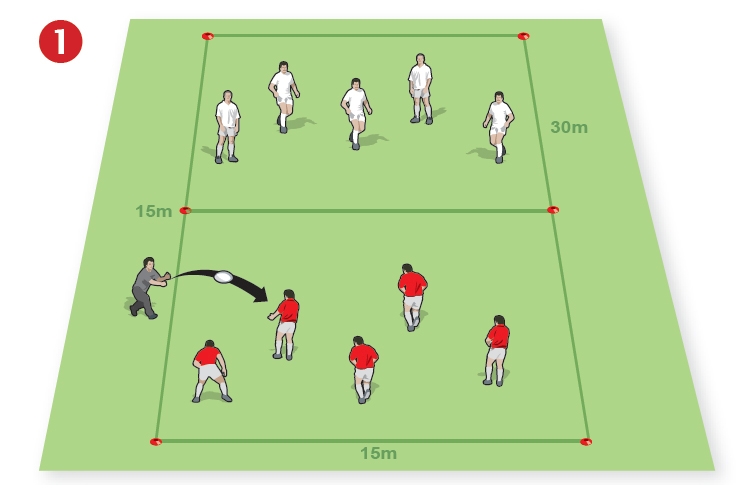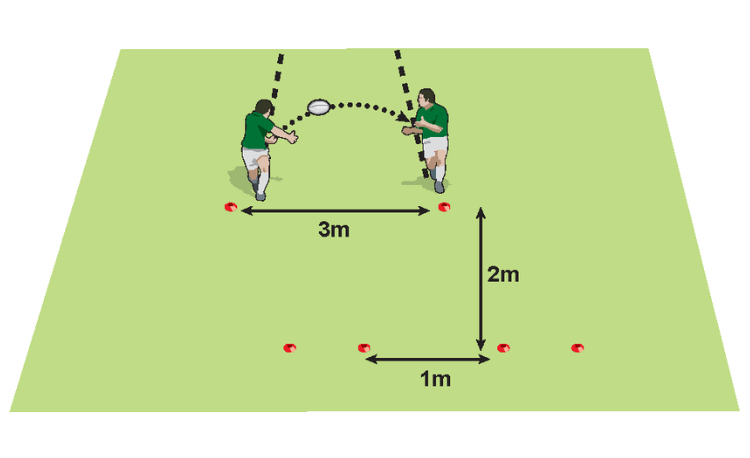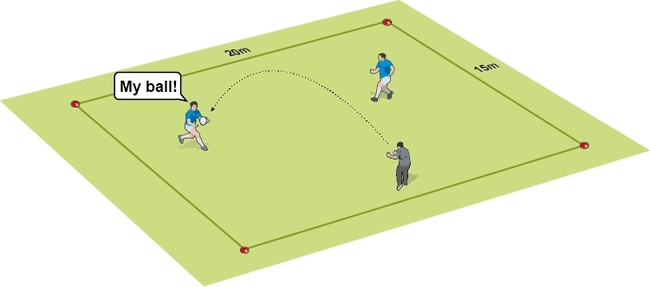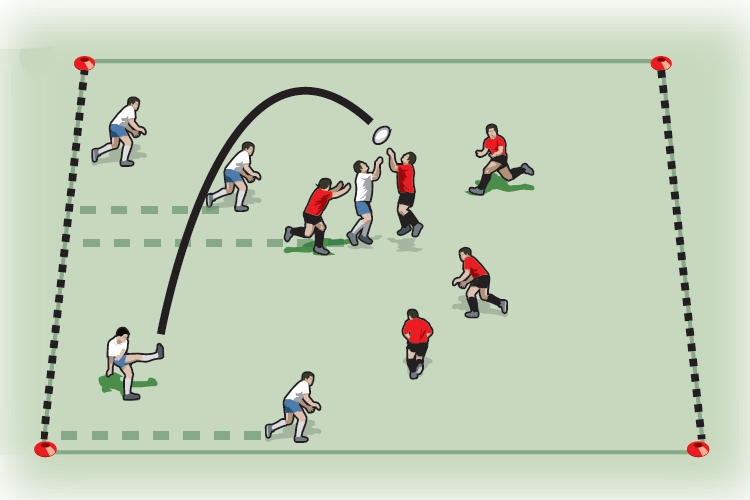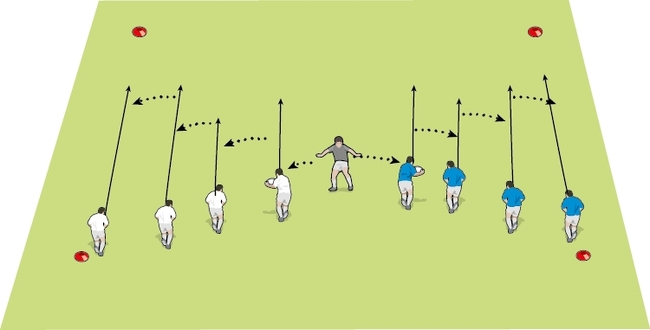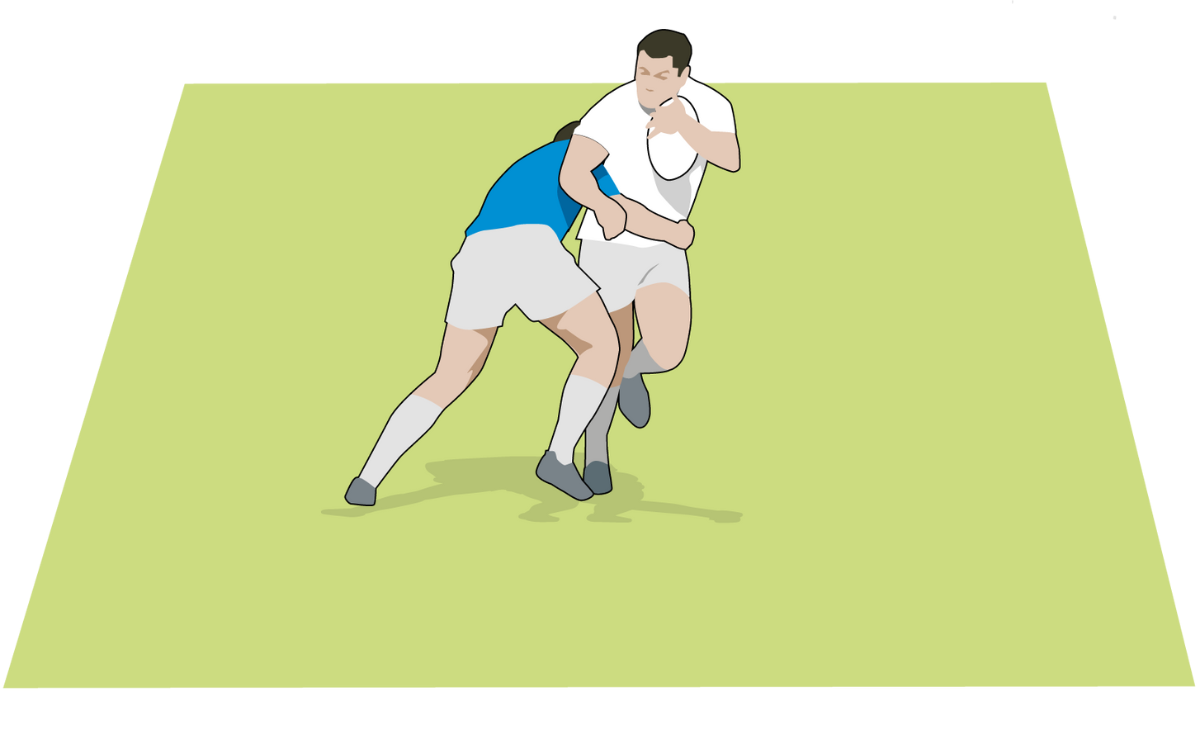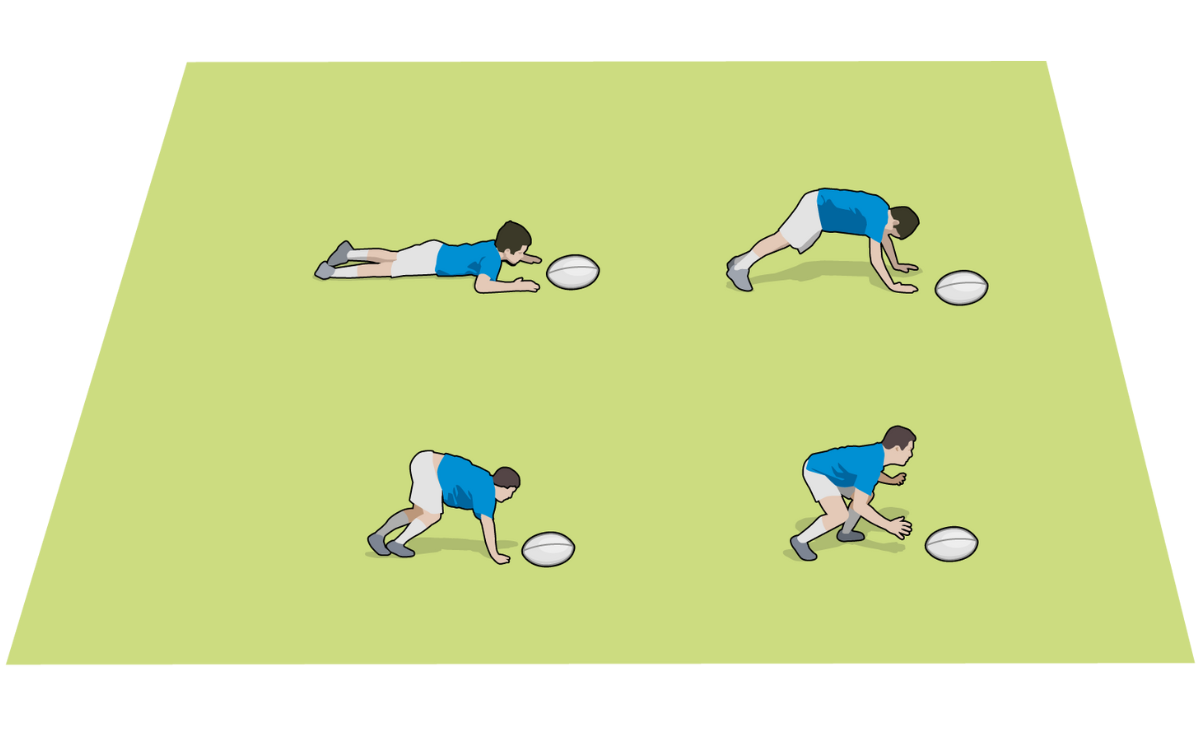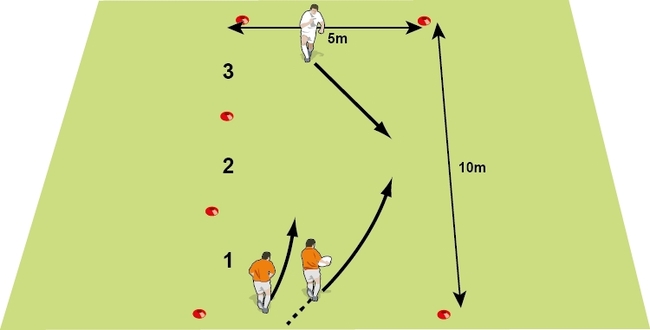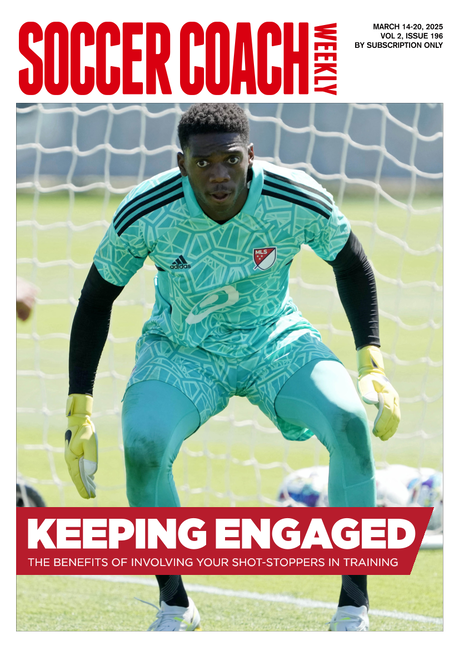Kick-off skills in 10 minutes
Try this 10-minute session for your kick-off specialists.
An accurate and consistent kick-off strategy can be very hard for opponents to defend against.
It can hand your team a territorial advantage, put the opposition under pressure and even force a turnover.
But having a kick-off team tactic is no good if the kicker cannot execute the kick accurately and consistently.
TECHNIQUE
Unlike the drop kick at goal, the main priority in the drop kick will usually be its height as opposed to distance. Aim for kicks to be in the air for three to four seconds to give chasers the time to compete for the ball and/or make a man-and-ball tackle.
The kicker needs to crouch a little more than for an attempt at goal, so they can easily get their foot under the ball. Their leg swing and contact direction should be up through the ball and only slightly forward. The shorter the kick, say, 10m, the greater the vertical angle needs to be.
For longer kicks, the vertical angle lessens and the horizontal angle increases.
Encourage the kicker to follow-through with the kick and keep their head down. As they kick through the ball, with their toes pointed and contact through the bottom of the laces, they should then make sure they follow through the ball by raising the toes up. Having the toes “chase” the kick, helps keep the ball in the air for longer.
A 10 MINUTE PLACEMENT SESSION
The kicker can practise kicking the ball into pre-set “hot kicking zone” areas of the pitch with someone returning the balls and counting the kick hang time. This can be done before the session starts and probably takes no more than 10 minutes.
The kicker should put three kicks into each zone. The kicker should aim to beat his personal best score for each completed set of kicks.
You’ll see where their strong and consistent kicking areas are. This can then help you formulate a kicking tactic (placement) and what the player needs to practise.
- Ensure the kicker understands the relation between vertical height and horizontal distance for various kicks.
- Get under the ball and follow-through for a kicking hang time.
- Keep the head down after the kick.
- Drop the ball so it falls in a still, steady shape and is not “wobbling”.
NOW TRY THIS!
Complete the 18 ball point scoring challenge:
- Land the ball into six different “hot zones”, with three kicks to each zone.
- The six zones are: left, middle and right just past the 10m line, long down the middle and past the 22m line, left and right.
- Work out which zone your kicker feels most comfortable kicking to.
Related Files
Newsletter Sign Up
Coaches Testimonials

Gerald Kearney, Downtown Las Vegas Soccer Club

Paul Butler, Florida, USA

Rick Shields, Springboro, USA

Tony Green, Pierrefonds Titans, Quebec, Canada
Subscribe Today
Be a more effective, more successful rugby coach
In a recent survey 89% of subscribers said Rugby Coach Weekly makes them more confident, 91% said Rugby Coach Weekly makes them a more effective coach and 93% said Rugby Coach Weekly makes them more inspired.
Get Weekly Inspiration
All the latest techniques and approaches
Rugby Coach Weekly offers proven and easy to use rugby drills, coaching sessions, practice plans, small-sided games, warm-ups, training tips and advice.
We've been at the cutting edge of rugby coaching since we launched in 2005, creating resources for the grassroots youth coach, following best practice from around the world and insights from the professional game.



